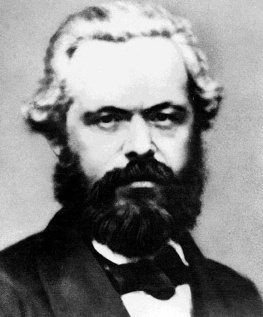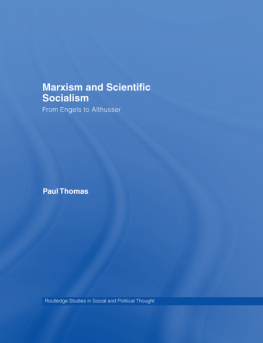SOCIALISM AND MODERN SCIENCE
(DARWIN, SPENCER, MARX)
BY
ENRICO FERRI
TRANSLATED BY
Robert Rives La Monte
Third Edition
CHICAGO
CHARLES H. KERR & COMPANY
1917
Copyright, 1900
by The International Library Publishing Co.
Table of Contents.
THE THREE ALLEGED CONTRADICTIONS BETWEEN DARWINISM AND SOCIALISM.
- The equality of individuals.
- The struggle for life and its victims.
- The survival of the fittest.
SOCIALISM AS A CONSEQUENCE OF DARWINISM.
EVOLUTION AND SOCIALISM.
SOCIOLOGY AND SOCIALISM.
- Reply to Spencer
- Socialist superstition and individualist myopia
Author's Preface.
(For the French Edition.)
This volumewhich it has been desired to make known to the great public in the French languagein entering upon a question so complex and so vast as socialism, has but a single and definite aim.
My intention has been to point out, and in nearly all cases by rapid and concise observations, the general relations existing between contemporary socialism and the whole trend of modern scientific thought.
The opponents of contemporary socialism see in it, or wish to see in it, merely a reproduction of the sentimental socialism of the first half of the Nineteenth Century. They contend that socialism is in conflict with the fundamental facts and inductions of the physical, biological and social sciences, whose marvelous development and fruitful applications are the glory of our dying century.
To oppose socialism, recourse has been had to the individual interpretations and exaggerations of such or such a partisan of Darwinism, or to the opinions of such or such a sociologistopinions and interpretations in obvious conflict with the premises of their theories on universal and inevitable evolution.
It has also been saidunder the pressure of acute or chronic hungerthat "if science was against socialism, so much the worse for science." And those who thus spoke were right if they meant by "science"even with a capital Sthe whole mass of observations and conclusions ad usum delphini that orthodox science, academic and officialoften in good faith, but sometimes also through interested motiveshas always placed at the disposal of the ruling minorities.
I have believed it possible to show that modern experiential science is in complete harmony with contemporary socialism, which, since the work of Marx and Engels and their successors, differs essentially from sentimental socialism, both in its scientific system and in its political tactics, though it continues to put forth generous efforts for the attainment of the same goal: social justice for all men.
I have loyally and candidly maintained my thesis on scientific grounds; I have always recognized the partial truths of the theories of our opponents, and I have not ignored the glorious achievements of the bourgeoisie and bourgeois science since the outbreak of the French Revolution. The disappearance of the bourgeois class and science, which, at their advent marked the disappearance of the hieratic and aristocratic classes and science, will result in the triumph of social justice for all mankind, without distinction of classes, and in the triumph of truth carried to its ultimate consequences.
The appendix contains my replies to a letter of Herbert Spencer and to an anti-socialist book of M. Garofalo. It shows the present state of social science, and of the struggle between ultra-conservative orthodoxy, which is blinded to the sad truths of contemporary life by its traditional syllogisms and innovating heterodoxy which is ever becoming more marked among the learned, as well as strengthening its hold upon the collective intelligence.
Enrico Ferri .
Brussels, Nov., 1895.
Introduction.
Convinced Darwinian and Spencerian, as I am, it is my intention to demonstrate that Marxian Socialismthe only socialism which has a truly scientific method and value, and therefore the only socialism which from this time forth has power to inspire and unite the Social Democrats throughout the civilized worldis only the practical and fruitful fulfilment, in the social life, of that modern scientific revolution whichinaugurated some centuries since by the rebirth of the experimental method in all branches of human knowledgehas triumphed in our times, thanks to the works of Charles Darwin and Herbert Spencer.
It is true that Darwin and especially Spencer halted when they had travelled only half way toward the conclusions of a religious, political or social order, which necessarily flow from their indisputable premises. But that is, as it were, only an individual episode, and has no power to stop the destined march of science and of its practical consequences, which are in wonderful accord with the necessitiesnecessities enforced upon our attention by want and miseryof contemporary life. This is simply one more reason why it is incumbent upon us to render justice to the scientific and political work of Karl Marx which completes the renovation of modern scientific thought.
Feeling and thought are the two inseparable impelling forces of the individual life and of the collective life.
Socialism, which was still, but a few years since, at the mercy of the strong and constantly recurring but undisciplined fluctuations of humanitarian sentimentalism, has found, in the work of that great man, Karl Marx, and of those who have developed and completed his thought, its scientific and political guide. This is the explanation of every one of its conquests.
Civilization is the most fruitful and most beautiful development of human energies, but it contains also an infectious virus of tremendous power. Beside the splendor of its artistic, scientific and industrial achievements, it accumulates gangrenous products, idleness, poverty, misery, insanity, crime and physical suicide and moral suicide, i. e. servility.
Pessimismthat sad symptom of a life without ideals and, in part, the effect of the exhaustion or even of the degeneration of the nervous systemglorifies the final annihilation of all life and sensation as the only mode of escaping from or triumphing over pain and suffering.
We have faith, on the contrary, in the eternal virtus medicatrix naturae (healing power of Nature), and socialism is precisely that breath of a new and better life which will free humanityafter some access of fever perhapsfrom the noxious products of the present phase of civilization, and which, in a more advanced phase, will give a new power and opportunity of expansion to all the healthy and fruitful energies of all human beings.
Enrico Ferri .
Rome, June, 1894.
FOOTNOTE:
The word in the original means a mariner's compass.Tr.
Socialism and Modern Science .
PART FIRST.
I.
VIRCHOW AND HAECKEL AT THE CONGRESS OF MUNICH.
On the 18th of September, 1877, Ernest Haeckel, the celebrated embryologist of Jena, delivered at the Congress of Naturalists, which was held at Munich, an eloquent address defending and propagating Darwinism, which was at that time the object of the most bitter polemical attacks.
A few days afterward, Virchow, the great pathologist,an active member of the "progressive" parliamentary party, hating new theories in politics just as much as in scienceviolently assailed the Darwinian theory of organic evolution, and, moved by a very just presentiment, hurled against it this cry of alarm, this political anathema: "Darwinism leads directly to socialism."













